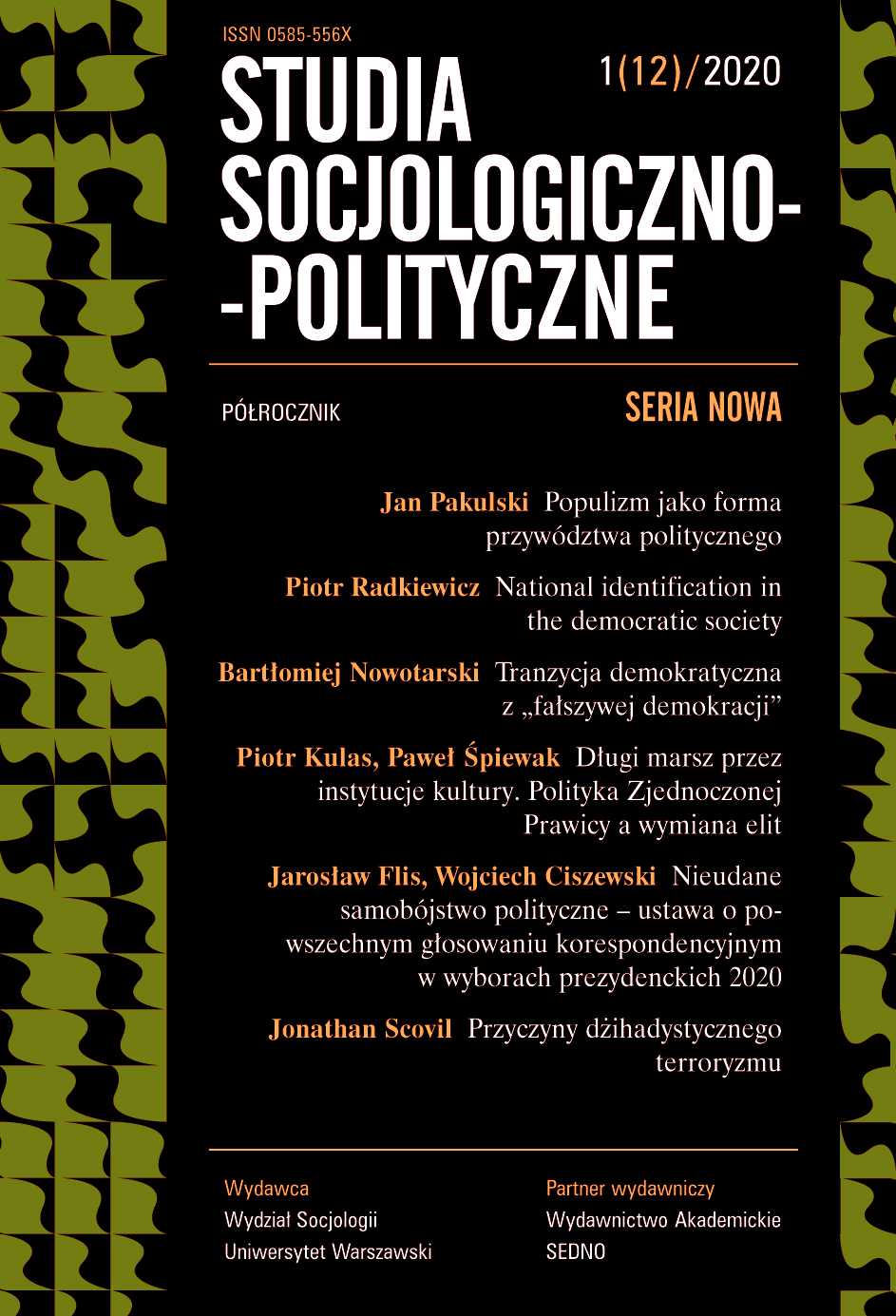Populizm jako forma przywództwa politycznego:
trzy tradycje teoretyczne i perspektywy badawcze
Populism as a form of political leadership: three theoretical traditions and research perspectives
Author(s): Jan PakulskiSubject(s): Politics / Political Sciences, Politics, History, Social Sciences, Cultural history, Political Theory, Political Sciences, Civil Society, Governance, Sociology, History of ideas, Political history, Social history, Government/Political systems, Political behavior, Politics and society, History and theory of political science, Crowd Psychology: Mass phenomena and political interactions, Nationalism Studies, Sociology of Culture, Social Norms / Social Control, Sociology of Politics, Globalization, Politics of History/Memory, Politics and Identity, Identity of Collectives
Published by: Wydział Socjologii Uniwersytetu Warszawskiego
Keywords: populism; political leadership; despotic democracy; leadership democracy; plebiscitary democracy; power elite; anti-elitism
Summary/Abstract: In a contemporary political sociology, experiencing a renaissance in political leadership studies, the populism – defined as a specific type of anti-establishment leadership – is quite well known not only from current „rises”, but also from former cyclic „tidal waves”. Even if there are visible parallels to former waves of populist politics, few socio-political analyses of the current „third wave” sweeping across Europe and the US benefit from the theoretical body of researches of previous waves. The current approach focuses on a shallow theoretical-historical approach to populism as a sui generis novum, as a critical backlash to contemporary development trends (ie. globalism, centralized government, neo-liberal politics, etc.). Thus this paper aims at reminding three important analyses relating to three consecutive waves of populism. All three point at populism as a manifestation of democratic trends and focus attention on leadership groups. Alexis de Tocqueville viewed populist campaigns of Louis Napoleon in France as manifestations of a „despotic democracy”. Max Weber judged European populisms he witnessed as manifestations of a „plebiscitary democracy”. Contemporary neo-elitists focus their attention both on leaders and on the structure of leadership groups as well as on relations between leaders and their „electorate”. Such leadership focused perspective is a necessary addendum to the research on contemporary populism.
Journal: Studia Socjologiczno-Polityczne. Seria Nowa
- Issue Year: 12/2020
- Issue No: 1
- Page Range: 9-26
- Page Count: 18
- Language: Polish

